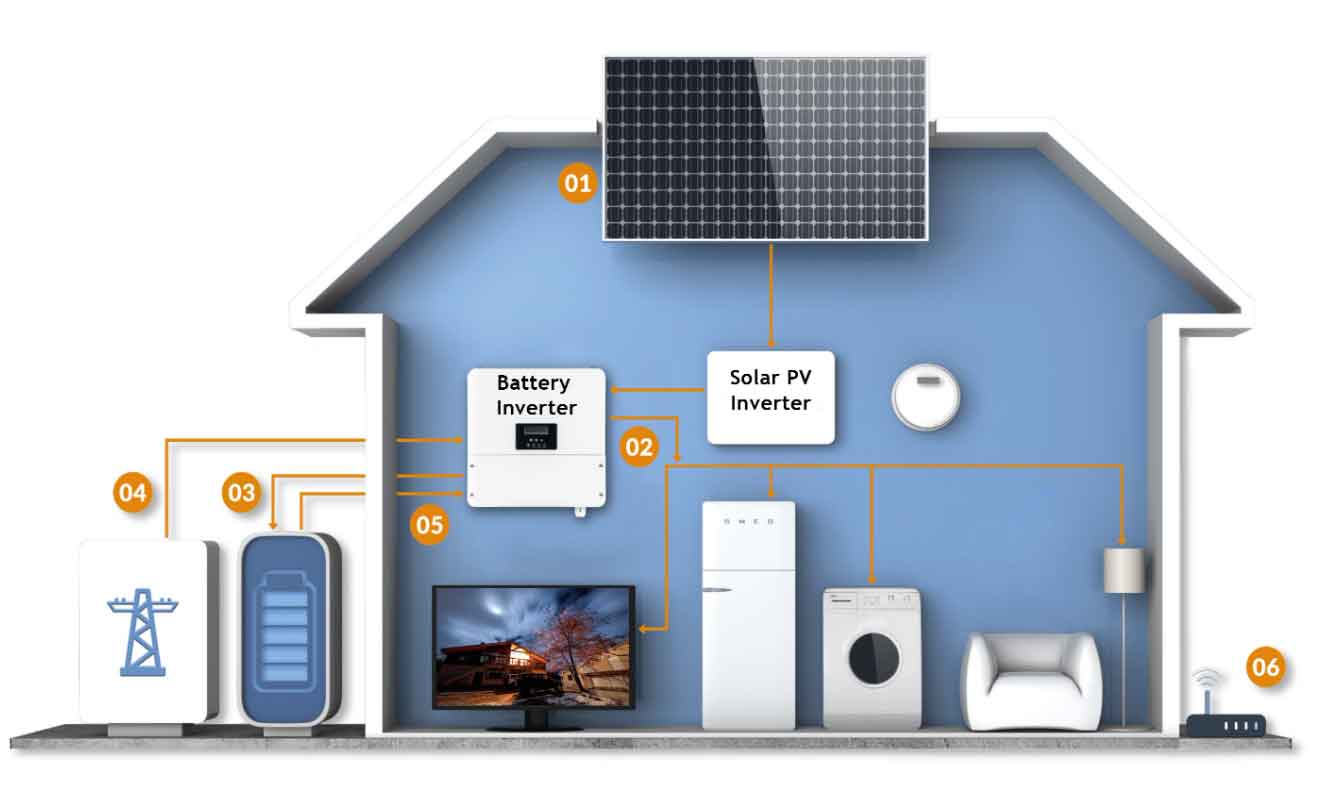
Introduction
The adoption of solar energy has seen a significant rise in recent years, driven by falling costs, environmental concerns, and advancements in technology. One of the critical components that enhance the efficiency and reliability of solar power systems is battery storage. Solar battery storage allows homeowners and businesses to store excess energy generated during the day for use during the night or cloudy days, ensuring a continuous power supply and enhancing energy independence. This article explores the economic aspects of solar battery storage, providing a detailed cost-benefit analysis for both homeowners and businesses.
Understanding Solar Battery Storage
Solar battery storage systems store the surplus electricity generated by solar panels. This stored energy can be used when the solar panels are not producing electricity, such as during the night or on overcast days. These systems typically include a battery, an inverter, and a monitoring system.
Cost of Solar Battery Storage
The cost of solar battery storage can vary widely depending on the size of the system, the type of battery, and installation costs. Here is a breakdown of typical costs:
| Component | Homeowners | Businesses |
|---|---|---|
| Solar Battery | $5,000 – $7,000 | $15,000 – $30,000 |
| Inverter | $1,000 – $2,000 | $5,000 – $10,000 |
| Installation | $1,000 – $3,000 | $5,000 – $15,000 |
| Total Cost | $7,000 – $12,000 | $25,000 – $55,000 |
Benefits of Solar Battery Storage
For Homeowners
- Energy Independence: Solar battery storage allows homeowners to rely less on the grid, providing a buffer against power outages and energy price fluctuations.
- Cost Savings: By storing excess energy, homeowners can reduce their reliance on the grid during peak hours when electricity prices are higher.
- Environmental Impact: Utilizing stored solar energy reduces the need for fossil fuel-based electricity, contributing to lower greenhouse gas emissions.
For Businesses
- Energy Security: Businesses can ensure a consistent power supply, critical for operations that require uninterrupted electricity.
- Cost Management: By using stored energy during peak demand periods, businesses can significantly reduce their energy costs.
- Sustainability Goals: Implementing solar battery storage can help businesses meet their sustainability and corporate social responsibility (CSR) goals.
Cost-Benefit Analysis
Homeowners
- Initial Investment: The upfront cost for a typical residential solar battery system ranges from $7,000 to $12,000.
- Savings: Average annual savings can be around $500 to $1,000, depending on energy consumption and local electricity rates.
- Payback Period: The payback period for homeowners is generally between 7 to 12 years.
Businesses
- Initial Investment: For businesses, the initial cost ranges from $25,000 to $55,000.
- Savings: Annual savings can range from $5,000 to $15,000, depending on the size of the business and energy usage patterns.
- Payback Period: The payback period for businesses is typically between 5 to 10 years.
Factors Influencing Economic Viability
- Energy Prices: Higher electricity rates can lead to greater savings and a shorter payback period.
- Government Incentives: Tax credits, rebates, and other incentives can significantly reduce the initial investment costs.
- Energy Consumption Patterns: The more energy consumed during peak hours, the greater the potential savings.
- Technological Advancements: Improvements in battery technology can lower costs and increase efficiency over time.
Conclusion
Solar battery storage represents a significant investment, but the potential benefits in terms of energy independence, cost savings, and environmental impact make it a compelling option for both homeowners and businesses. While the initial costs can be substantial, the long-term savings and the ability to contribute to a more sustainable future are considerable incentives. As technology continues to improve and costs decrease, solar battery storage will likely become an even more attractive option in the years to come.
By carefully evaluating the costs and benefits, homeowners and businesses can make informed decisions about integrating solar battery storage into their energy solutions, ensuring they are well-positioned to take advantage of the economic and environmental benefits of this technology.
